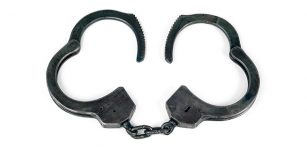What Can Happen When You Commit a Breach of Bail (NSW)?

If you have been charged with a criminal offence, before any trial or hearing or even any court appearance, there is the consideration by the police and the courts as to whether you should be released on bail or kept in custody. If you are released on bail you will usually be subjected to certain bail conditions. If you are kept in custody a specialised criminal lawyer can assist you to apply for bail.
Bail conditions are often burdensome and can interfere with your life. They can involve daily or twice a week reporting to police stations during certain hours; it can involve giving up your passport, the non-consumption of alcohol, not driving at certain times, not being allowed within a certain area etc.
In addition to the nature of these conditions, you can be subject to them for significant periods of time. It can take at least 2 to 3 months from the time you are charged to the time a matter is resolved even in the event of a guilty plea. It takes time to gather the police files, for forensic evidence to be finalised and for that material to be reviewed by you and your lawyer. In the event of a not guilty plea you can be subjected to bail conditions for even longer periods of time.
So there is perhaps an element of inevitability in some cases that a defendant commits a breach of bail in NSW, whether it be on a minor technical aspect or because of changes in circumstances or a more serious breach.
If you have a committed a breach of your bail conditions, there is a lot you can do. First and foremost you should always contact your lawyer who can give you the best advice as to how to proceed.
Is it an offence?
Under the new Bail Act 2013 a failure to comply with a bail condition is not a criminal offence. The outcome instead is that the conditions are re-evaluated, either with a view to varying the conditions, imposing more conditions, or having bail refused and being placed into custody.
Each breach of a bail condition will be considered in terms of its seriousness or its nature.
Minor breaches of bail
A minor breach of bail could be failure to report to a police station on one occasion. Or it may involve driving at night when you were prohibited.
In these minor ‘technical’ breaches of bail police may sometimes exercise discretion and have you continue to be released on bail with a warning. However, more serious bail condition breaches or continued breaches of a minor condition may see you remanded back in custody to appear before the court.
Changes in circumstance
There may be changes in your circumstances which make it difficult to adhere to original bail conditions. You may be able to vary your conditions of bail in those circumstances. It is important to think ahead before there is a breach of bail condition, to anticipate the need to vary your bail conditions.
For example, your original bail condition may have been to report to a police station near your place of work. If you change locations for your work then having to report to that original police station may be very inconvenient. Contact your lawyer who can apply to vary the bail condition on your behalf in those reasonable circumstances. This can be varied before you end up breaching the bail.
Varying bail for other reasons
When you were first released on bail you may have been charged with a serious offence. Therefore you may have had a number of burdensome conditions imposed. Perhaps over time, due to your lawyer negotiating with police or because of want of evidence, the charges have been reduced to less serious offences. You may have complied with your conditions of bail during that whole time. This is an instance in which you could apply to vary your bail even if there is no change in your personal circumstances. The fact is there has been a change to your charges and you have shown your compliance with previous bail conditions. This could suggest you are not a risk to the community when released on bail.
Serious breach of bail
A serious breach of bail may see you remanded in custody and brought before the court with a re-evaluation as to whether you should be released again at all. A serious breach for example may be being charged with a further serious criminal offence. The court takes further alleged offending whilst on bail very seriously. Also, if you are presented as being a flight risk, or compromising the safety of any witnesses or a risk to the community, the courts will look less favourably on releasing you on bail.
Certainly, there may be reasons for the serious breach of bail that the court ought to be aware of and this can be appropriately conveyed by your criminal lawyer.
Breaches of bail can and do happen. Bail conditions need to find the right balance between the fundamental right that a person is innocent until proven guilty and protection of the community. Especially when these conditions are often imposed for significant periods of time.






